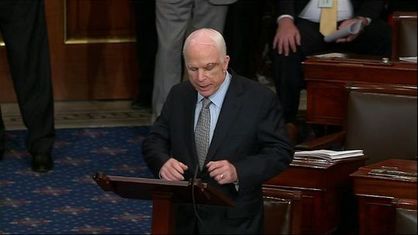 I am writing this blog post while Congress is debating whether and how to change the U.S. healthcare system. This is something that, according to the news, will be determined in three days and will be decided by a simple majority without analysis of consequences by the Congressional Budget Office and without hearings involving the affected parties. This seems like a bad time to talk about long-term planning and a broader view of healthcare. Let me do it anyway, starting with an important research paper by Mary Dunn and Candace Jones in Administrative Science Quarterly. They looked at a central input to healthcare: medical schools, which educate the doctors who are in charge of providing the type of medical care that requires the MD degree and who direct the medical care done by others, such as nurses and lab technicians. Although medical care is much bigger than doctors, they are at its core, so how they are educated is consequential. The paper found that medical schools have had an enduring division between two logics on how to think about healthcare, and one of these has become more influential over time. This view of education, and healthcare, is very new and needs some explanation. Much simplified, the logics are as follows. One is that education is the transfer of scientific knowledge, so that this knowledge can be used in practice. So, medical school is about the science of medicine. The other is that education instills values, and the guiding value for medicine is to care for people. So, medical school is about care, which can include care for people who are not yet patients and people who cannot be cured. Dunn and Jones wrote a fascinating paper on how these two logics were in contention over decades. Advocates of each logic recognized the conflict with the other and fought for resources and attention to be devoted to their own logic. They saw an emphasis of their favored logic as essential for the health of medical education and the health of the nation more broadly. I don’t have room to describe their discussion here, but an important conclusion is that the care logic has grown in importance, and a key element of its growth was greater public discussion on managed care, with its emphasis on preventive medicine and focus on reducing costs. This conclusion has become even more important in light of recent events. Managed care helped make the care logic more prominent, which facilitated useful initiatives such as thinking of public care more broadly to include prevention of disease and thinking of patients as individuals in need of care instead of just as cases with prognoses. But it also had two other effects that play a role in current politics around healthcare. First, the science part of medicine became less important, which now has become part of a greater movement against science having a role in state decisions overall. Second, cost is now a key consideration in health, which is clear given that estimates of tens of millions of people losing health insurance are acceptable as long as costs go down. Cost savings are even more important than the science behind estimating that tens of millions will lose their insurance, with the health consequences this will have. Dunn, Mary B., and Candace Jones. 2010."Institutional Logics and Institutional Pluralism: The Contestation of Care and Science Logics in Medical Education, 1967--2005." Administrative Science Quarterly 55(1):114-49. Comments are closed.
|
Blog's objectiveThis blog is devoted to discussions of how events in the news illustrate organizational research and can be explained by organizational theory. It is only updated when I have time to spare. Archives
May 2024
Categories |
 RSS Feed
RSS Feed